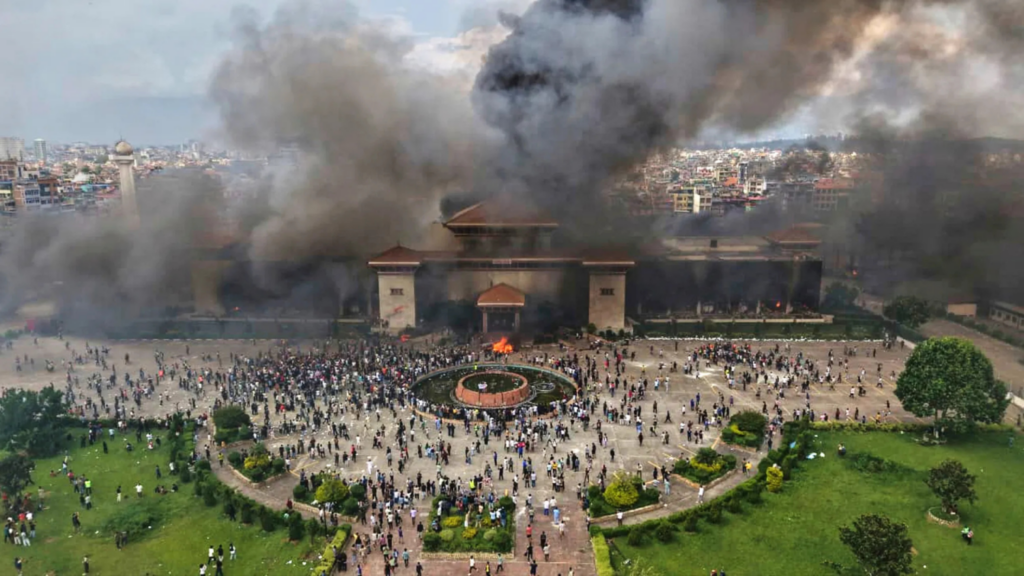The Draining of Nations: The Ultra-Wealthy’s Exploitation of UK Finance and Law
Is the UK’s standing in global finance being overshadowed by a reputation as a haven for corrupt money?
London’s status as a global financial hub attracts not only legitimate investment but also illicit wealth. Despite comprehensive legal frameworks, including the Bribery Act 2010 and the Criminal Finances Act 2017, enforcement gaps and structural loopholes leave the United Kingdom vulnerable to illicit financial flows (IFFs) (ICAI, 2020). Many Western democracies, including the UK, rely on anti-kleptocratic reputations to project legitimacy, yet the reality is far more complex. Modern kleptocracy is increasingly transnational; global elites exploit financial systems to convert political power into secure private wealth (Cooley, et al., 2018). This trend poses a profound democratic threat to the UK, highlighting the need for strategic policy responses to these sophisticated forms of exploitation (Walker and Aten, 2018).
New-Age Kleptocracy
Contemporary kleptocracy differs distinctly from traditional models. Haugaard (2023) defines traditional kleptocracy as a system where political leaders rely on coercion rather than legitimacy, maintaining power through zero-sum, highly unequal relationships. By contrast, modern kleptocracy relies less on overt coercion and more on professional enablers: legal firms, bureaucracies, and global financial centres that launder money and conceal assets within democratic frameworks (Cooley et al., 2018). These regimes often manufacture legitimacy through elections, media control, and nationalism, resembling authoritarian systems in structure, but operating legally.
Since 2016, Russian oligarchs have channelled an estimated ‘£1.5 billion’ into London’s luxury property market (Transparency International, 2022).
By consolidating wealth abroad whilst maintaining the image of democratic governance at home, elites masked the extraction of national wealth and systemic abuse of power (Lanskoy and Myles-Primakoff, 2018). Similarly, rather than using the funds to address Angola’s acute poverty, weak infrastructure, and widespread inequality, Isabel dos Santos, the daughter of the former Angolan president, channelled wealth into the global financial system by partnering with Western banks and consulting firms to invest in diamonds, telecoms, and real estate in London (Pitcher and Rodrigues Sanches, 2019). As a result, she was able to launder legitimacy for her investments while extracting resources from Angola’s state-owned enterprises. Therefore, IFFs enable kleptocrats to safeguard wealth abroad, with London serving as one of the principal safe havens.
UK Legislative Responses
The UK has developed multiple frameworks to combat such financial crimes (Figure 1), yet significant enforcement challenges remain. Key measures include:
UK Global Anti-Corruption Sanctions (2025):
- Asset freezes, monetary penalties, and restrictions on making funds available.
- Criminal prosecution with up to seven years’ imprisonment or unlimited fines.
- Bans on serving as company directors and immigration restrictions to block corrupt actors (Development Office, 2021).
Criminal Finances Act 2017 (CFA):
- Strengthens law enforcement powers against money laundering, tax evasion, corruption, and terrorism financing.
- Introduces corporate offences with strict liability, compelling companies to implement procedures preventing facilitation of financial crimes.
- Introduces Unexplained Wealth Orders (UWOs) to compel individuals to justify suspicious assets.
- Expands the authority of the UK Financial Intelligence Unit (UKFIU) through reforms to Suspicious Activity Reports (SARs) (Home Office, 2018).
Despite these reforms, enforcement remains under-resourced. Wealthy actors exploit professional enablers, complex corporate structures, trusts, nominee directors, and offshore jurisdictions to obscure beneficial ownership (Pollitt and Stiggear, 2025). Legal challenges and prolonged proceedings often delay asset recovery, with current measures focusing more on post-entry recovery than on prevention (OECD, 2014).
Global Financial Centres and Professional Enablers
Along with other global financial hubs, the UK’s Corruption Perceptions Index (CPI) score shows a decline in the UK’s score since 2020, reflecting persistent concerns over financial crime and corruption, specifically IFF to the UK (Transparency International, 2025). Scholars such as Heathershaw highlight the central role of professional enablers including banks, law firms, and real estate agents in facilitating kleptocrats to operate internationally (Cooley et al., 2018).
For instance, the UK ranks as a leading destination for African IFFs, hosting ‘5.4%’ of illicit flows and recording ‘8.2%’ of misinvoicing in bilateral trade (Signé et al., 2020, P.9). It is also the second-largest regional host after East Asia & Pacific. Although there is little data on inward IFFs to the UK, the Organisation for Economic Co-operation and Development (OECD) reported in 2014 flagged weaknesses in beneficial ownership transparency and due diligence for non-financial businesses (OECD, 2014). Reforms such as the Economic Crime (Transparency and Enforcement) Act 2023 have been introduced, but enforcement remains weak.
The COVID-19 pandemic further exacerbated vulnerabilities with ‘£7.6 billion’ in pandemic-related fraud, facilitated by fast-tracked procurement and stretched public institutions (Transparency International, 2024, P.32). Yet more regulation does not equal less illicit financial flow. London remains one of the easiest places to move, invest, and protect wealth internationally (ICAI, 2020), and kleptocracts can hire top legal teams to challenge enforcement, which can deter agencies from pursuing complex cases, and the under-usability of Suspicious Activity Reports (SARS) or UWO’s.
Anti-Corruption Pressures and Policy Challenges
IFFs distort the economy, inflating property prices, shaping investment patterns, and creating reputational risks for UK finance (Signé et al., 2020). To combat these risks, financial institutions face persistent tension between rules-based and risk-based enforcement approaches (Home Office, 2024). Rules-based systems provide comprehensive coverage but leave loopholes, while risk-based approaches target specific compliance issues but may miss systemic risks. The choice depends on how much money firms are willing to invest.
In addition, global political turnover in 2025, following elections involving nearly half the world’s voters, is likely to heighten anti-corruption pressures (Pollitt and Stiggear, 2025). Incoming governments often signal reform through anti-corruption measures, as seen in France and the U.S. (Collard and Dreyfus, 2025; Cates, 2024). Efforts are often in the form of high profile investigations, corporate liability reforms, and enhanced disclosure requirements that aim to restore public trust.
Yet in the UK, legislative updates often fail to curb illicit flows, with the country simultaneously leading on anti-corruption discourse while remaining a top destination for kleptocratic wealth (UNDP Global Policy Centre for Governance, 2024). Government initiatives require reliable data to be effective; funding data collection through organisations such as United Nations Trade and Development (UNCTAD), investing in sophisticated compliance tools, and fully utilising SARs and UWOs are essential to countering IFFs in the UK (UNDP, 2023). Policymakers must balance enforcement with maintaining London’s appeal as a financial hub.
Bibliography
- Cates, P. (2024). The (in)Efficacy of Multilateral Corruption Laws: Why the United States Should Endorse the International Anti-Corruption Court. [online] Northwestern Pritzker School of Law Scholarly Commons. Available at: https://scholarlycommons.law.northwestern.edu/njilb/vol44/iss1/5 [Accessed 22 Sep. 2025].
- Collard, S. and Dreyfus, F. (2025). Revolution Revisited: Emmanuel Macron and the Limits of Political Change in France. Taylor & Francis.
- Cooley, A., Heathershaw, J. and Sharman, J.C. (2018). Laundering Cash, White Washing Reputations. Journal of Democracy, [online] 29(1), pp.39–53. doi:https://doi.org/10.1353/jod.2018.0003.
- Development Office (2021). Global anti-corruption sanctions: guidance. [online] GOV.UK. Available at: https://www.gov.uk/government/publications/global-anti-corruption-sanctions-guidance/global-anti-corruption-sanctions-guidance.
- Haugaard, M. (2023). Kleptocracy, authoritarianism and democracy as ideal types of political power. Journal of Political Power, [online] 16(3), pp.1–34. doi:https://doi.org/10.1080/2158379x.2023.2194712.
- Home Office (2018). Circular 003/2018: unexplained wealth orders. [online] GOV.UK. Available at: https://www.gov.uk/government/publications/circular-0032018-criminal-finances-act-unexplained-wealth-orders/circular-0032018-unexplained-wealth-orders.
- Home Office (2018). Circular 004/2018: unlawful conduct: gross human rights abuses or violations. [online] GOV.UK. Available at: https://www.gov.uk/government/publications/circular-0042018-criminal-finances-act-unlawful-conduct-gross-human-rights-abuses-or-violations/circular-0042018-unlawful-conduct-gross-human-rights-abuses-or-violations [Accessed 22 Sep. 2025].
- Home Office (2018). Circular 006/2018: Criminal Finances Act: disclosure orders. [online] GOV.UK. Available at: https://www.gov.uk/government/publications/circular-0062018-criminal-finances-act-disclosure-orders/circular-0062018-criminal-finances-act-disclosure-orders [Accessed 22 Sep. 2025].
- Home Office (2018). Home Office Circular: Criminal Finances Act 2017 MONEY LAUNDERING: SHARING OF INFORMATION WITHIN THE REGULATED SECTOR SECTIONS 339ZB-339ZG. [online] Available at: https://assets.publishing.service.gov.uk/media/5a7492fb40f0b61938c7e8c4/HO_Circular-_Sharing_of_information_within_the_regulated_sector_1.0.pdf [Accessed 22 Sep. 2025].
- Home Office (2024). No place to hide: serious and organised crime strategy 2023 to 2028 (accessible version). [online] GOV.UK. Available at: https://www.gov.uk/government/publications/serious-and-organised-crime-strategy-2023-to-2028/no-place-to-hide-serious-and-organised-crime-strategy-2023-to-2028-accessible-version?utm_source=chatgpt.com [Accessed 22 Sep. 2025].
- ICAI (2020). Mapping the UK’s approach to tackling corruption and illicit financial flows Information note. [online] Available at: https://icai.independent.gov.uk/wp-content/uploads/ICAI_Anticorruption-and-illicit-financial-flows.pdf [Accessed 22 Sep. 2025].
- Lanskoy, M. and Myles-Primakoff, D. (2018). Power and Plunder in Putin’s Russia. Journal of Democracy, 29(1), pp.76–85. doi:https://doi.org/10.1353/jod.2018.0006.
- OECD (2024). Fighting foreign bribery. [online] OECD. Available at: https://www.oecd.org/en/topics/fighting-foreign-bribery.html [Accessed 22 Sep. 2025].
- Organisation For Economic Co-Operation And Development (2014). Illicit Financial Flows from Developing Countries : Measuring OECD Responses. [online] Paris: Oecd Publishing. Available at: https://www.oecd.org/content/dam/oecd/en/publications/reports/2014/04/illicit-financial-flows-from-developing-countries_g1g331b9/9789264203501-en.pdf [Accessed 22 Sep. 2025].
- Pitcher, A. and Rodrigues Sanches, E. (2019). The Paradox of Isabel dos Santos. Cahiers d’études africaines, (234), pp.597–624. doi:https://doi.org/10.4000/etudesafricaines.26276.
- Pollitt, M. and Stiggear, S.S. (2025). Hot Topics in Anti-Bribery and Corruption for 2025. [online] UK Finance. Available at: https://www.ukfinance.org.uk/news-and-insight/blog/hot-topics-in-anti-bribery-and-corruption-2025 [Accessed 22 Sep. 2025].
- Signé, L., Sow, M. and Madden, P. (2020). POLICY BRIEF Illicit financial flows in Africa Drivers, destinations, and policy options 2 AFRICA GROWTH INITIATIVE Illicit financial flows in Africa: Drivers, destinations, and policy options. [online] Available at: https://www.brookings.edu/wp-content/uploads/2020/02/Illicit-financial-flows-in-Africa.pdf?utm_source=chatgpt.com [Accessed 22 Sep. 2025].
- Transparency International (2022). Stats reveal extent of suspect wealth in UK property and Britain’s role as global money laundering hub. [online] Transparency International UK. Available at: https://www.transparency.org.uk/news/stats-reveal-extent-suspect-wealth-uk-property-and-britains-role-global-money-laundering-hub [Accessed 3 Oct. 2025].
- Transparency International (2024). BEHIND THE MASKS. [online] Available at: https://www.transparency.org.uk/sites/default/files/2024-11/Behind%20the%20Masks%20Report%20Final_0.pdf [Accessed 22 Sep. 2025].
- UNDP (2023). First-ever official data on illicit financial flows now available | UNCTAD. [online] unctad.org. Available at: https://unctad.org/news/first-ever-official-data-illicit-financial-flows-now-available [Accessed 22 Sep. 2025].
- UNDP Global Policy Centre for Governance (2024). Action on Transnational Corruption. [online] UNDP. Available at: https://www.undp.org/sites/g/files/zskgke326/files/2024-10/atac_2_pager_sep_202457.pdf [Accessed 22 Sep. 2025].
- Walker, C. and Aten, M. (2018). A Challenge For Democracy. Journal of Democracy, [online] 29(1), pp.20–24. doi:https://doi.org/10.1353/jod.2018.0001.



